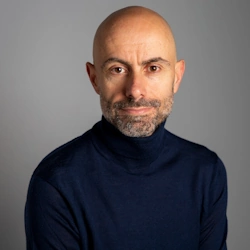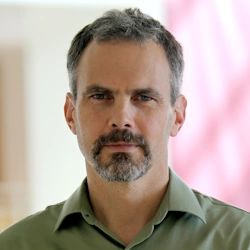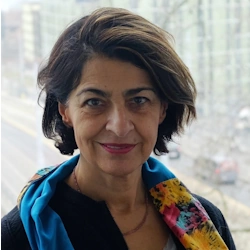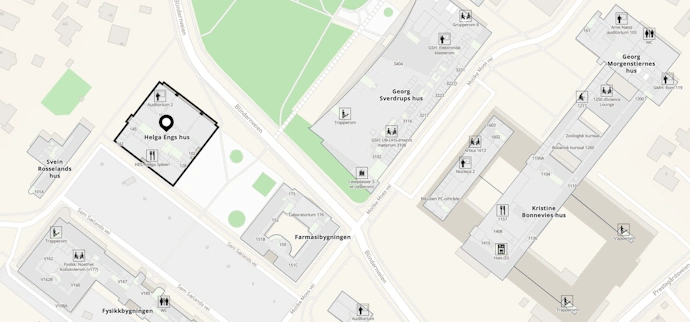The physical events on Wednesday and Thursday are now full. You can still watch the opening speech, the keynotes and the panel at Zoom. Links will be published on this web page on the days of the events.
Zoom-link for Thursday: https://uio.zoom.us/j/67516476791 (ID: 675 1647 6791)
We still welcome you to the open event in Domus Bibliotheca on Friday (held in Scandinavian languages).
- Download the program and abstracts (pdf)
About the conference
There is wide consensus that globalization and knowledge-based regulation in education has raised expectations of policy learning across national boundaries. One of the concrete challenges that policy actors face is how to gather, and evaluate, evidence and expertise in order to strengthen the quality and relevance of education.
The conference highlights how knowledge circulation can be facilitated as well as contested through policy transfer within and beyond national contexts. We also seek answers about the consequences this transfer may have for researchers, policy makers, professionals and stakeholders.
The Department of Education, University of Oslo hosts this final conference of the POLNET-project in which researchers from seven research institutions collaborate (University of Iceland, University of Aalborg, University of Oslo, Linnaeus University, Tampere University, TC Columbia University, and the Digital Humanities Laboratory of the National Library in Norway).
The main goal of this project has been to employ comparative network analysis to explore how school reforms are renewed by the production and use of policy knowledge within and across five Nordic countries.
The conference program includes keynotes, invited presentations and parallel sessions with paper presentations.
Keynotes
Welcome to academic lectures by three world-renowned scholars in the research field of comparative policy studies in education. No pre-registration is required for attending the keynotes.
Prof. Antoni Verger (Autonomous University of Barcelona)
"Revisiting Education Policy Movement Research: New Developments and Lines of Inquiry"
Nov 29, 15.15–16.00, Aud 2, HE.
Abstract
The study of policy movement has gained prominence in recent decades, as transnational policy circulation has intensified and policy growth has continued in most democratic societies. Policy movement manifests in different domains, including education, where there is a well-established literature exploring the mechanisms and forms of agency behind the phenomenon. However, this literature needs to be revisited to address recent developments in the field that defy established assumptions.

This talk will focus on three of these developments and related research challenges: 1) Exogenous transformations: Recent political and economic transformations, such as the (neo)liberal backlash and the changing power balance between countries in international fora, are challenging main theoretical premises about the drivers of education policy movement. 2) The changing role of international organizations: In an increasingly competitive transnational market of policy ideas and evidence, the role of international organizations in policy dynamics is changing rapidly, from a focus on policy transfer to the theorization and construction of policy models. 3) Policy recontextualization: The intensification of policy movement has not meant educational systems looking more alike internationally. Research on global education policy, in parallel to the study of policy convergence trends, should inquire more into policy recontextualization processes. Despite these challenges, comparative and education policy studies are increasingly equipped, both theoretically and methodologically, to address them and to capture a richer multi-scalar policy-making reality.
Prof. Christopher Lubienski (Indiana University)
"Challenges to the ideal of evidence-based education policy"
Nov 30, 09.00–10.00, Aud 2, HE.
Zoom-link: https://uio.zoom.us/j/67516476791 (ID: 675 1647 6791)
Abstract
Many researchers like to believe that the knowledge they produce can substantially inform education policy and practice. Thus, the research community looks to examine factors such as knowledge mobilities and translation, policy formation and design, and adaptation and implementation fidelity relative to international standards and “best practices” as indicated by experts in the field.

Indeed, researchers should promote the use of evidence in policy and practice, and hold accountable policymakers and practitioner leaders that ignore research findings. Yet researchers must also consider the real-world challenges to any idealization of evidence use and expertise, particularly in education policy and practice.
This overview considers a number of such challenges, including the insulation of education policymakers from accountability pressures, provincialism and exceptionalism, the democratization of expertise, the rise of alternative sources of expertise and the pollution of the information ecosystem, and the contradictory nature of the purposes of mass education systems.
Prof. Gita Steiner-Khamsi (Columbia University, New York)
"Brokers as boundary spanners between science and politics: Applying the two-communities theory to the Nordic education policy space""
Nov 30 14.45–15.30, Aud 2, HE
Zoom-link: https://uio.zoom.us/j/67516476791 (ID: 675 1647 6791)
Abstract
Over the past five years, the POLNET research project investigated the relationship between science and politics. Concretely, the five-country study examined the use of research evidence for policy decisions. It may be an opportune moment to reflect on the space in between given the rise of knowledge brokers which bridge the gap between science and politics.
There is not only a surplus of information in the digital age but also a proliferation of “information silos” enabling interest groups to selectively use data, turn the data into evidence, and make their research evidence heard vis-à-vis decision makers (Lubienski and Malin, 2023). In concert with the observation of other authors (see Mackillop, Downe, and Quarmby, 2019), there is an overemphasis in public policy research on individuals as brokers.

There is need to de-individualize knowledge brokerage and instead examine government-appointed institutions which have the mandate to review research, translate that research for purposes of policy decisions, and make concrete policy recommendations.
In the Nordic policy space, two knowledge brokerage institutions stand out: one at the national level and one at the international level. At the national level, the government-appointed advisory panels which produce Green Papers (NOUs in Norway, SOUs in Sweden) may be considered knowledge brokers. Across all five countries of the Nordic region, the OECD surfaced as an important knowledge producer and broker of competency-based curriculum reform (see also Seitzer, Baek, Steiner-Khamsi, 2023).
Drawing on the bibliometric analyses in the POLNET study (see Karseth, Sivesind, Steiner-Khamsi, 2022), the presentation first disaggregates the institutions that engage with production, (ii) brokerage, and (iii) usage of research evidence for policy decisions in the five participating countries, and then investigates how international knowledge brokerage (advanced by the OECD) is translated at the national level.
References
Karseth, B., Sivesind, K. and Steiner-Khamsi, G., eds (2022). Evidence and expertise in Nordic education policy. A comparative network analysis. New York: Palgrave. Open access: https://link.springer.com/book/10.1007/978-3-030-91959-7.
Lubienski, C. and Malin, J. (2023). Evidence Production, Promotion and Pollution: Private Interests and Knowledge Brokerage in US Education Policy. Presentation at the 2023 CIES conference in Washington, DC (forthcoming as a book chapter, E. Elgar Press).
Mackillop, E., Downe, J. and Quarmby, S. (2019). Does knowledge brokering facilitate evidence-based policy? A review of existing knowledge and an agenda for future research. Policy and Politics.
Seitzer, H., Baek, C. and Steiner-Khamsi, G. (2023). Instruments of Lesson-Drawing: Comparing the Knowledge Brokerage of the OECD and the World Bank. Policy Studies, https://doi.org/10.1080/01442872.2023.2220282.
Full conference program, day by day
Day 1: Wednesday, Nov 29
Zoom-link: https://uio.zoom.us/j/68761098742 (Meeting ID: 687 6109 8742)
- 12.00, The Helga Eng Building (HE): Registration
- 13.15–13.45, Aud 2, HE: Welcome and introduction by Kirsten Sivesind, University of Oslo (UiO). Opening talk by Tone Kvernbekk, Head of the Department of Education, UiO
- 13.45 – 14.45, Aud 2, HE: Nordic School Reforms by Comparative Network Analysis. Final Outcomes of the POLNET Project by Kirsten Sivesind (PI, UiO), Chanwoong Baek (Geneva Graduate Institute/ UiO) and Berit Karseth (UiO)
- 14.45–15.15: Break
- 15.15–16.00, Aud 2, HE: Plenary Keynote: Revisiting Education Policy Movement Research: New Developments and Lines of Inquiry, by Antoni Verger, Autonomous University of Barcelona
- 16.00–16.30: Break
- 16.30–18.00: Parallel sessions, HE 231 & HE 232
- 18.00: Reception in the entrance hall in The Helga Eng Building (HE)
Day 2: Thursday, Nov 30
Zoom-link: https://uio.zoom.us/j/67516476791 (ID: 675 1647 6791)
- 08.30: Registration at The Helga Eng Building (HE)
- 09.00–10.00, Aud 2, HE: Plenary Keynote: Challenges to the Ideal of Evidence-based Education Policy, Christopher Lubienski, Indiana University
- 10.00–10.15: Break
- 10.15–12.00, Aud 2, HE: Plenary Panel: From Science to Politics: Expertise, Evidence, and Knowledge Transfer. Presentations and discussions of ongoing research, with Marte Mangset (UiO), Eivind Engebretsen (UiO), Taran Mari Tune (UiO), Stine Hesstvedt (Institute of Social Research) and Johan Christensen (Leiden University).
- 12.00–13.00: Lunch
- 13.00–14.30: Parallel sessions, HE 231 & HE 232
- 14.30–14.45: Break
- 14.45–15.30, Aud 2, HE: Plenary Keynote: Brokers as Boundary Spanners between Science and Politics: Applying the two-community Theory to the Nordic Education Policy Space by Gita Steiner-Khamsi (Columbia University, New York)
- 15.30–15.45, Aud 2, HE: Closing by Kirsten Sivesind and Berit Karseth
- 15.45–16.00: Break
- 16.00–17.00, HE 231: Final project meeting
Day 3: Friday, Dec 1
- 10.00–12.00, Domus Bibliotheca: Open event with presentation of findings and panel discussion (the event will be held in Scandinavian languages)
Practical information
The conference takes place at the University of Oslo. The research seminar will be organized as a physical event in Helga Eng's House at Blindern Campus, and as hybrid event. Zoom-links will be provided to those who have registered for the conference.

The third day politicians, policy makers and stakeholders are invited for an arrangement in Domus Bibliotheca, one of the classical university buildings in the centre of Oslo. In this particular arrangement, talks will be in Norwegian/Swedish.
Got any questions?
If you have questions concerning the conference, please contact kirsten.sivesind@iped.uio.no.
The physical events on Wednesday and Thursday are now full. You can still watch the opening speech, the keynotes and the panel at Zoom. More information on this will bee published on this web page. We still welcome you to the open event in Domus Bibliotheca on Friday (held in Scandinavian languages).
